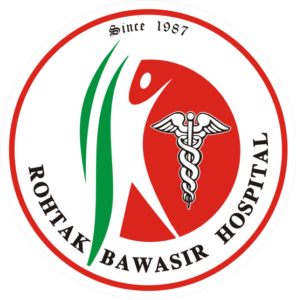Piles in Pregnancy: Safe Treatments and Prevention Tips Copy


Updated on: 4th Jun 2024
Pregnancy is a transformative phase in a woman’s life, filled with excitement, anticipation, and physical changes. However, this journey can also bring about certain health challenges, one of which is piles, also known as hemorrhoids. Piles are swollen veins in the rectal or anal area that can cause discomfort, pain, and even bleeding. They are common during pregnancy due to hormonal changes and the physical pressure exerted by the growing uterus. Fortunately, there are safe treatments and effective prevention strategies to manage this condition during pregnancy.
What Causes Piles During Pregnancy?

1. Increased Hormonal Levels
During pregnancy, the hormone progesterone increases significantly. While it is essential for maintaining a healthy pregnancy, it also relaxes the walls of blood vessels, making them more prone to swelling and leading to the formation of piles.
2. Increased Pressure in the Pelvic Area
As the uterus grows to accommodate the baby, it puts extra pressure on the pelvic veins. This can slow down blood flow from the lower body, causing the veins around the rectum and anus to swell.
3. Constipation
Hormonal changes and iron supplements commonly taken during pregnancy can lead to constipation. Straining during bowel movements due to constipation further exacerbates the risk of developing piles.
4. Reduced Physical Activity
Pregnant women often reduce their level of physical activity, particularly in the later stages. This can lead to poor circulation and contribute to the development of piles.
Symptoms of Piles During Pregnancy
Itching and irritation around the anal area
Pain or discomfort during or after bowel movements
Swelling or lumps around the anus
Bleeding during bowel movements
A sensation of incomplete bowel evacuation
Safe Treatment Options for Piles During Pregnancy

When treating piles during pregnancy, safety for both the mother and baby is paramount. Here are some safe and effective treatment options:
1. Topical Treatments
Over-the-counter creams and ointments: Products containing hydrocortisone or witch hazel can help reduce inflammation, itching, and discomfort. Always consult your doctor before using any medication.
Cold compresses: Applying a cold pack to the affected area can provide temporary relief from pain and swelling.
2. Sitz Baths
Soaking the anal area in warm water for 10-15 minutes several times a day can help reduce discomfort and promote healing.
3. Fiber Supplements and Stool Softeners
To alleviate constipation, doctors may recommend fiber supplements like psyllium or methylcellulose.
Stool softeners can make bowel movements easier and reduce the need for straining.
4. Dietary Modifications
A diet rich in fiber (e.g., fruits, vegetables, whole grains) can help prevent constipation and ease symptoms of piles.
Drinking plenty of water (8-10 glasses per day) is also essential to maintain healthy digestion.
5. Physical Activity
Gentle exercises like walking or prenatal yoga can improve blood circulation and reduce the risk of developing piles.
6. Medications
If the symptoms are severe, your doctor may prescribe safe medications for pain relief or to reduce inflammation.
Prevention Tips for Piles During Pregnancy

Preventing piles during pregnancy involves adopting a healthy lifestyle and taking proactive measures:
1. Maintain a High-Fiber Diet
Include fiber-rich foods like oats, beans, lentils, apples, and berries to prevent constipation.
Avoid processed foods and refined carbohydrates, which can worsen constipation.
2. Stay Hydrated
Drink at least 8-10 glasses of water daily.
Herbal teas and fresh fruit juices (without added sugar) can also help maintain hydration.
3. Avoid Straining During Bowel Movements
Use a footstool to elevate your feet slightly while sitting on the toilet. This position can make bowel movements easier.
Respond promptly to the urge to defecate to avoid straining.
4. Stay Active
Engage in light physical activities such as walking, swimming, or prenatal yoga to improve blood circulation and digestive health.
5. Avoid Prolonged Sitting or Standing
Take frequent breaks to move around if your routine involves sitting or standing for extended periods.
Use a cushion or pillow to sit more comfortably and reduce pressure on the rectal area.
6. Practice Good Hygiene
Gently clean the anal area with unscented wipes or a soft cloth after each bowel movement.
Avoid using harsh soaps or toilet paper that can irritate the skin.
When to Seek Medical Attention

While piles during pregnancy can often be managed with home remedies and lifestyle changes, some cases require medical intervention. Consult your doctor if you experience:
Severe pain that does not improve with treatment
Persistent or heavy bleeding
Signs of infection, such as fever or swelling
Difficulty passing stools despite dietary changes and medications
Your healthcare provider may recommend additional treatments, such as rubber band ligation or minimally invasive procedures, if the symptoms are severe and persistent.
Conclusion
Piles during pregnancy are a common but manageable condition. By understanding the causes, recognizing the symptoms, and following safe treatment and prevention strategies, you can alleviate discomfort and maintain your well-being throughout this special time.
Adopting a fiber-rich diet, staying hydrated, and incorporating gentle physical activity into your routine can significantly reduce the risk of developing piles. If you experience symptoms, consult your healthcare provider for tailored advice and safe treatment options. Remember, prioritizing your health and comfort is essential for a happy and healthy pregnancy.
Meet Our Specialists

Dr. Raj Kumar Garg (B.A.M.S.)
40+ Years of Experience

Dr. Rahul Garg (B.A.M.S.)
15+ Years of Experience

